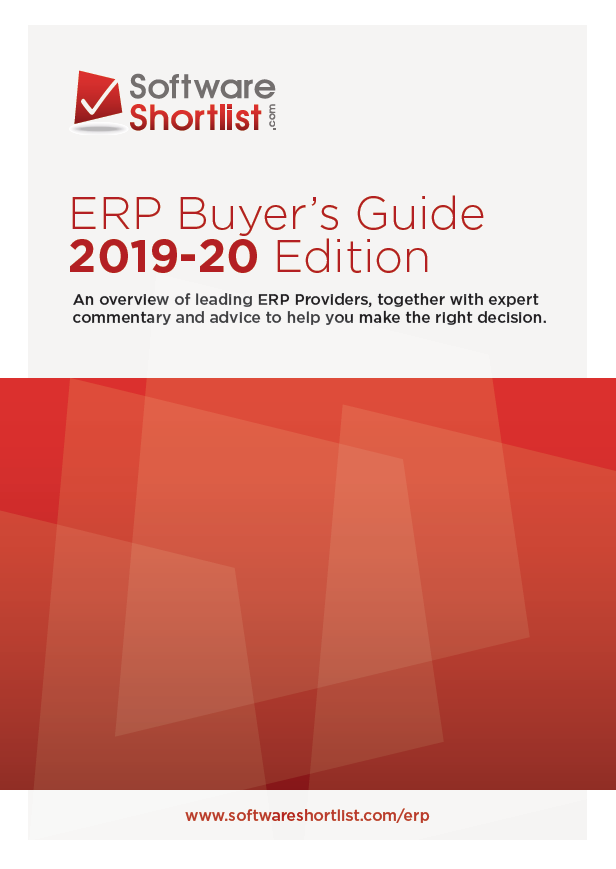As a discrete manufacturer, you deal with distinct finished products (such as vehicles, machines, and medical devices) that can be easily seen, touched or counted, and which can be separated back into their basic components. These characteristics distinguish you from process manufacturers (such as pharmaceutical or food companies) whose products are made by refining raw materials using a specific recipe or formula and where the final product is impossible to break back down into its basic constituents.
These important attributes mean that the business needs and challenges faced by discrete manufacturers are different from those faced by process manufacturers.
Challenges and needs of discrete manufacturers
More than ever, discrete manufacturers are under pressure to deliver high-quality products to the market on time. In order to remain competitive, they also need to effectively manage their business and process performances, deal with government regulations and industry compliance requirements, and adjust to economic fluctuations.
For example:
- Machine assembly and industrial machinery manufacturers are increasingly outsourcing components and activities. This creates the possibility of parts changing hands many times before final assembly. Such manufacturers therefore need to have greater visibility, not just in their own shop floor, but also into the status and processes of their suppliers.
- High tech and electronic manufacturers are facing important challenges relating to rapid innovation. As such, they need to continuously optimize and fine tune their business processes across their global supply chain to remain competitive.
- Medical device manufacturers face similar challenges as with electronics, however, they also have to deal with stringent FDA regulations including requirements to provide detailed information on their materials, productions, customer services, and design revisions.
- Metal fabrication companies deal with different distinct segments such as fasteners, metal valves, hardware and springs, metal containers, stamping and forging, and structural metals. They face complex challenges in line with their customer needs, with a focus on producing high-quality products to exact specifications. They also have to synchronize customer orders with their productions schedules in order to effectively meet market demand and reduce their inventory levels.
It makes sense therefore that discrete manufacturers implement an ERP solution that will help them to effectively meet their specific requirements, and enable them to turn their challenges into competitive advantages.
ERP for discrete manufacturers
Not all ERP software is the same; a system designed for general use or even for process manufacturers is unlikely to meet the demands of discrete manufacturers, at least not without significant time and cost in customizing it. In many cases, discrete manufacturers would be well-advised to stick to ERP solutions designed for their specific industry. Finding an implementation partner experienced in your sector is also a good idea.
By implementing the right ERP software, discrete manufacturers can automate and improve key processes such as customer management, manufacturing and procurement. This can lead to the realization of competitive advantages such as cost reduction, elimination of high levels of inventory, and improved customer satisfaction. These factors can contribute significantly to increased profitability.
ERP features relevant to discrete manufacturers
ERP software for discrete manufacturers should streamline and integrate your business processes and systems. The solution should be highly flexible and functional to bring about growth and profitability. Below are some examples of features that discrete manufacturing software typically includes:
- Inventory Management: This helps to accurately provide real-time levels of inventory so that restocking and forecasts are accurately and appropriately adjusted, thus reducing inventory levels without hindering the company’s delivery performance. It can also help to reduce inventory write-offs through increased visibility of inventory levels and more accurate forecasting of customer demand.
- Customer Order Management: This feature helps to precisely handle order tracking, acknowledgements, order taking, and quotes for each customer. It enables accurate entering and recording of orders, and can streamlines the end-to-end process of managing orders, leading to increased customer satisfaction.
- Financial Management: An integrated financial module enables you to reconcile cash flow figures, profit-and-loss statements, and balance sheets for different entities. This provides a reliable, 360-degree view of a company’s financial performance across all departments. It also gives a company the ability to adapt to global growth and acquisition demands even in very challenging and competitive business environments.
- Demand Planning: This feature enables discrete manufacturers to make customer needs the focus of their planning processes. This in turn enables the business’s operational processes to be proactive and demand-driven, enabling you to efficiently schedule customer orders, deliver products faster to the market, and reduce inventories.
- Product Life-cycle Management: This feature helps you effectively manage product lifecycles starting from design all the way to aftermarket services. The availability of comprehensive product information helps companies make informed decisions and can close any existing gaps between different departments.
In summary, ERP software can enable discrete manufacturers to significantly improve their business performance and processes, resulting in increased customer satisfaction and greater profitability. It is important, however, than any ERP system be well-suited to the specific requirements of discrete manufacturing.
Article contributed by Joy M.



